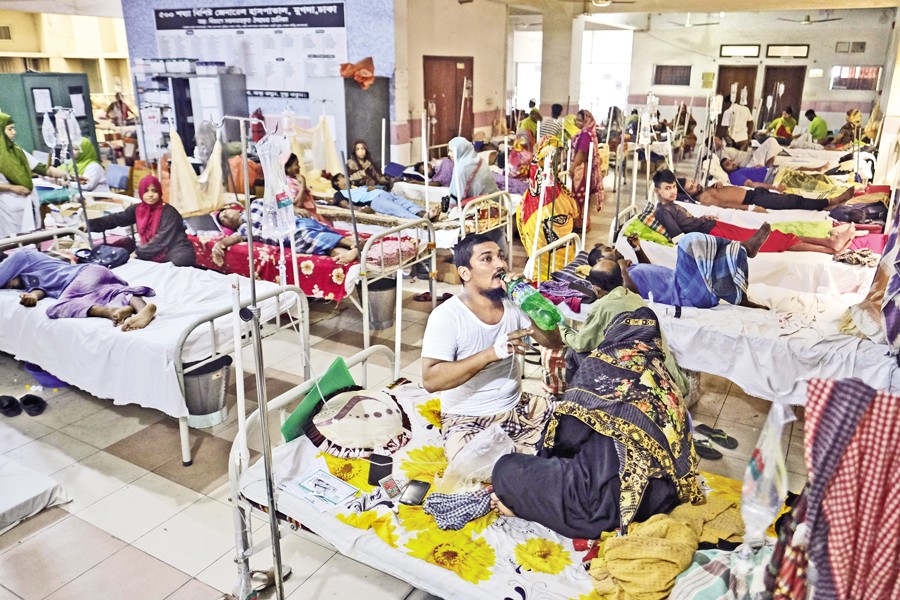
Published :
Updated :

Hospitals and other health service providers in the public sector have long earned infamy for corruption as well as substandard services. Reports on such irregularities abound. One might recall here the Transparency International Bangladesh (TI,B)'s study report of November 2020 during the outbreak of Covid-19. In that study, the corruption watchdog reportedly came up with ample evidences of massive irregularities in the procurement of emergency medical supplies and management of cash programme for the people economically affected by the general holiday ordered as a preventive measure against Covid-19. Against this backdrop, one is hardly surprised at the Bangladesh Public Procurement Authority (BPPA)'s recently published post-procurement review of what it said serious weakness found in procurement practices by key health agencies including the Directorate General of Health Services (DGHS), the Directorate-General of Family Planning (DGFP) and the Department of Public Health Engineering (DPHE).
Notably, some 30 contracts each from the said health agencies for the fiscal year 2023-24 came under the scanner of the BPPA to see if those complied with the Public Procurement Act and Public Procurement Rules. In particular, the DGHS, which does the bulk of the spending under the public health sector, was found wanting in planning and contract oversight as some 433 instances of procurement delay were observed. Field inspections showed that many medical consignments were delivered but left unused resulting in damage to the equipment in question. Even some pieces of medical equipment so procured were either unnecessary or unsuitable for the purpose. What it all made clear is that the procurement was made without proper needs assessment leading to wastage of public fund. Questions also arose about the process of awarding contracts to the medical equipment suppliers. Unfortunately, it was found that more than 43 per cent of DGHS contracts representing close to 83 per cent of the total contract value were awarded to a single tender where some five suppliers grabbed the majority of the DGHS contracts. Unquestionably, it went against the principle of fair competition. At the same time, it also exposes the vulnerability of the health agency concerned to possible collusion with the contractor and price manipulation against the interest of the common people.
So, it is undoubtedly a commendable effort on the part of BPPA to have unravelled some cases of gross and egregious irregularities regarding procurement of medical supplies, some of which involved life-saving equipment. Obviously, such lapses implied potential misappropriation of public money as well as inexcusable wastage of state resources. As is evident from the BPPA's post-procurement review, the government's apparently robust legal and digital procurement framework is rather weak when it comes to its practical execution. In this connection, the BPPA's recommendations for making need assessment mandatory, ensuring stronger contract management, prohibiting pre-delivery payment, preparing procurement schedules with an eye to budgetary allocations and so on are surely to the point. It is one thing to uncover instances of irregularities, but quite another to take appropriate action to rid the entire health sector of the elements responsible for mismanagement and corruption.
What the BPPA has laid its hands on is just the tip of the iceberg. In fact, such a vital sector of the government that looks after the health of the nation is itself afflicted with chronic ailments. Essentially, the health sector, its major service providing agencies in particular, requires complete overhauling-lock, stock and barrel. But so far no serious attempt has been made by successive governments to this end. Now it is time the interim government acted on the basis of the recommendations made by the Bangladesh Public Procurement Authority (BPPA) to rid the public health sector of its deep-seated mismanagement and corruption.


 For all latest news, follow The Financial Express Google News channel.
For all latest news, follow The Financial Express Google News channel.